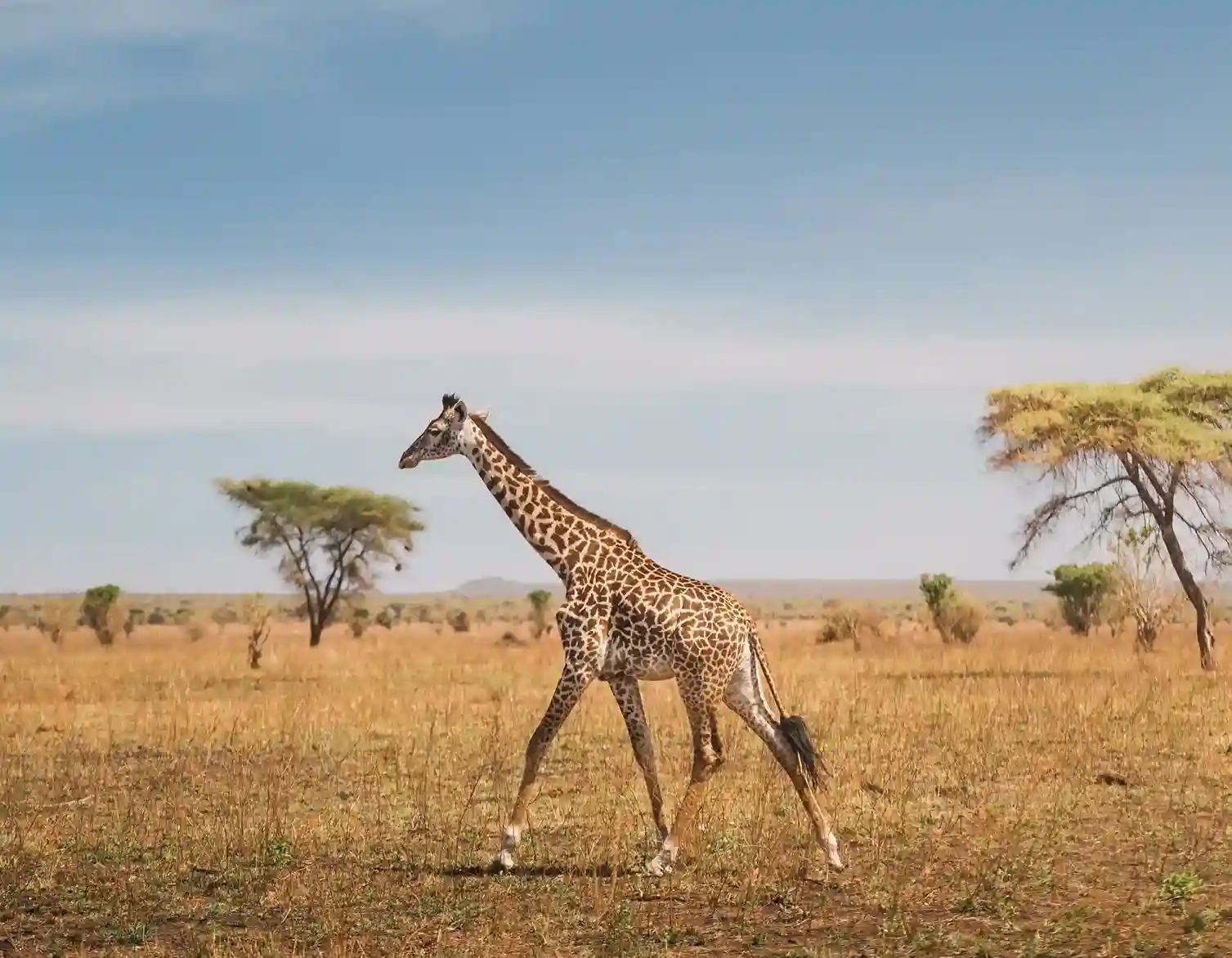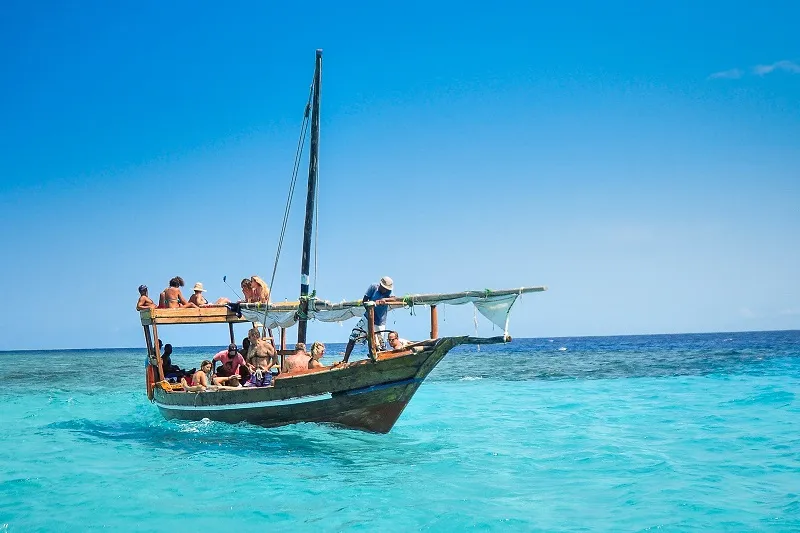Kilimanjaro Climb in February: Best Trekking Tours & Costs
Planning a Kilimanjaro climb in February? This is your ultimate guide to trekking Africa’s highest peak during one of the best months of the year! February offers stable weather, fewer crowds, and clear summit views, making it ideal for Kilimanjaro trekking. With Capable Africa Tours, explore top routes like Machame, Lemosho, and Marangu, with detailed costs, expert guides, and practical tips to ensure a successful summit. Whether you're a beginner or seasoned trekker, our Kilimanjaro climbing packages are tailored for adventure, safety, and unforgettable memories. Read on to discover why a Kilimanjaro climb in February is your perfect adventure, complete with pricing and tour details!
Book Your Kilimanjaro Trek NowKilimanjaro Climb in February Highlights
- Duration: 6–9 Days, depending on the route
- Destinations: Kilimanjaro (5,895m), Tanzania
- Main Focus: Summit Uhuru Peak, scenic trails, acclimatization
- Tour Style: Guided trekking, small groups (2–12 people)
- Best Time: February for dry weather, clear views
- Ideal For: Adventure seekers, hikers, photographers
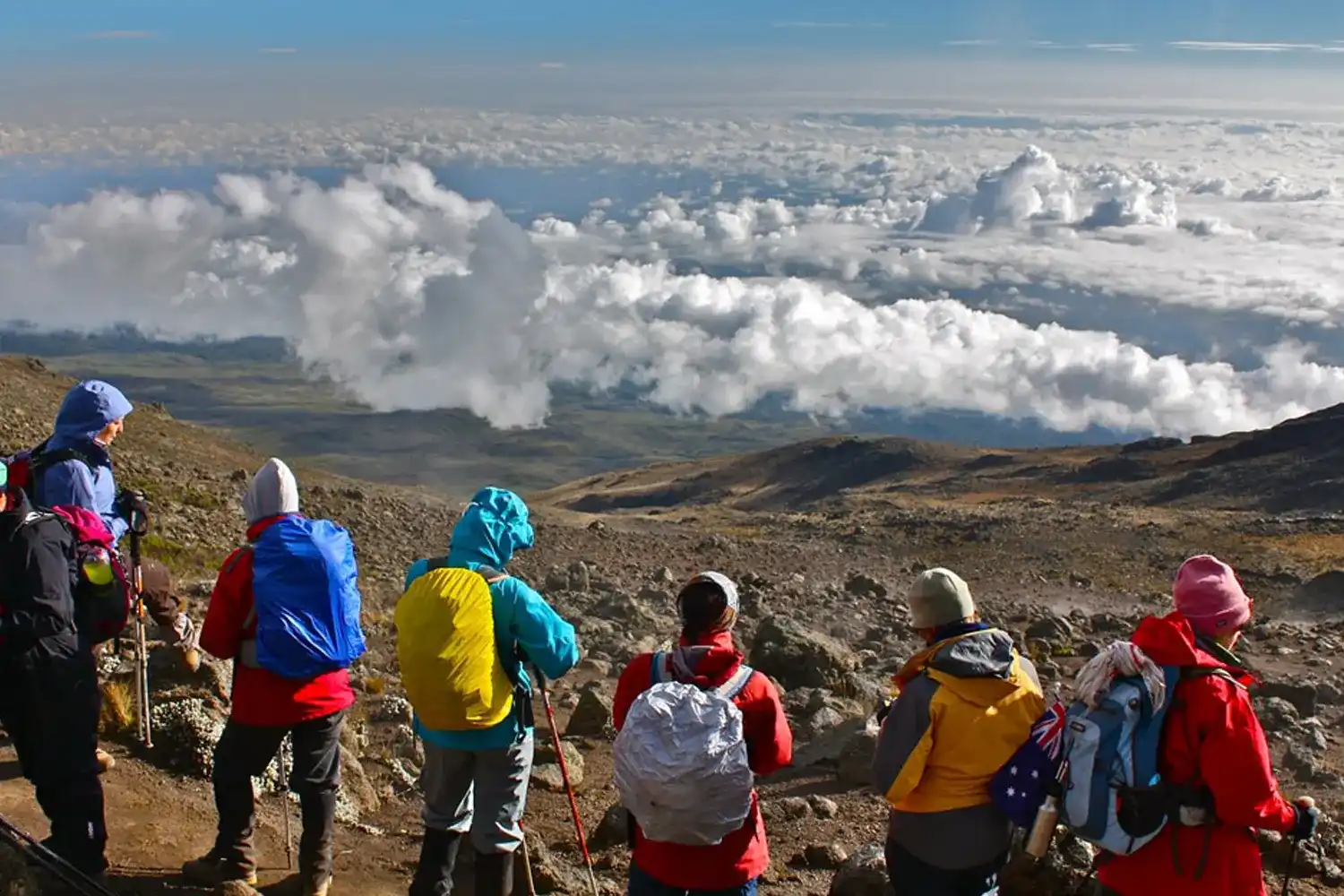
Why Choose a Kilimanjaro Climb in February?
A Kilimanjaro climb in February with Capable Africa Tours is the perfect way to conquer Africa’s tallest mountain. February falls within Kilimanjaro’s dry season, offering stable weather, minimal rain, and clear skies for stunning summit views. With fewer trekkers on the trails compared to peak months like August, you’ll enjoy a more serene experience. Our expertly crafted Kilimanjaro trekking packages include top routes like Machame (scenic and challenging), Lemosho (gradual ascent for acclimatization), and Marangu (comfortable with huts). Each route is led by certified guides, ensuring safety and a high summit success rate (up to 95% on Lemosho). Whether you’re chasing adventure or personal achievement, this February trek delivers an unforgettable journey.
Our tours include comprehensive support—porters, cooks, and medical checks—to make your Kilimanjaro trekking experience seamless. From lush rainforests to alpine deserts and the iconic Uhuru Peak, you’ll traverse diverse landscapes while creating lifelong memories.
Detailed Kilimanjaro Trekking Itinerary (Machame Route)
This 7-day Machame route itinerary is one of the most popular for a Kilimanjaro climb in February, offering scenic beauty and a high summit success rate. Below is a day-by-day breakdown of your adventure with Capable Africa Tours.
Day 1: Arrival in Moshi
Your Kilimanjaro climb in February begins in Moshi, the base for Kilimanjaro treks. Arrive at Kilimanjaro International Airport (JRO) and transfer to your hotel. Meet your guide for a briefing on the trek, gear checks, and acclimatization tips.
- Activities: Airport transfer, trek briefing
- Highlights: Cultural introduction to Moshi
- Meals: Dinner at hotel
- Accommodation: Moshi hotel
Day 2: Moshi to Machame Gate & Machame Camp
Drive to Machame Gate (1,800m) to start your Kilimanjaro trekking adventure. Trek through lush rainforests to Machame Camp, spotting colobus monkeys and vibrant flora. The trail is steady, aiding early acclimatization.
- Trek Time: 5–7 hours (11 km)
- Altitude: 1,800m to 3,000m
- Highlights: Rainforest trek, wildlife sightings
- Meals: Breakfast, lunch, dinner
- Accommodation: Machame Camp (tents)
Day 3: Machame Camp to Shira Camp
Climb through moorland to Shira Camp (3,840m), enjoying panoramic views of Shira Plateau. The shorter trek allows time for acclimatization and rest, preparing you for higher altitudes.
- Trek Time: 4–6 hours (5 km)
- Altitude: 3,000m to 3,840m
- Highlights: Shira Plateau, first views of Kibo
- Meals: Breakfast, lunch, dinner
- Accommodation: Shira Camp (tents)
Day 4: Shira Camp to Barranco Camp via Lava Tower
Trek to Lava Tower (4,600m) for acclimatization, then descend to Barranco Camp (3,950m). This “climb high, sleep low” strategy boosts summit success. Enjoy views of the Barranco Wall.
- Trek Time: 6–8 hours (10 km)
- Altitude: 3,840m to 4,600m to 3,950m
- Highlights: Lava Tower, Barranco Wall
- Meals: Breakfast, lunch, dinner
- Accommodation: Barranco Camp (tents)
Day 5: Barranco Camp to Karanga Camp
Scale the Barranco Wall, a thrilling climb, then trek to Karanga Camp (3,995m). The short day allows for rest and acclimatization, with stunning views of Kibo Peak.
- Trek Time: 4–5 hours (5 km)
- Altitude: 3,950m to 3,995m
- Highlights: Barranco Wall climb, Kibo views
- Meals: Breakfast, lunch, dinner
- Accommodation: Karanga Camp (tents)
Day 6: Karanga Camp to Barafu Camp
Trek to Barafu Camp (4,673m), your base for the summit push. Rest early to prepare for the midnight ascent to Uhuru Peak, with guides ensuring you’re ready for the challenge.
- Trek Time: 4–5 hours (4 km)
- Altitude: 3,995m to 4,673m
- Highlights: Alpine desert, summit preparation
- Meals: Breakfast, lunch, dinner
- Accommodation: Barafu Camp (tents)
Day 7: Barafu Camp to Uhuru Peak & Mweka Camp
Begin your summit ascent at midnight, reaching Uhuru Peak (5,895m) for sunrise. Celebrate at Africa’s highest point, then descend to Mweka Camp (3,100m) for rest.
- Trek Time: 10–14 hours (5 km up, 12 km down)
- Altitude: 4,673m to 5,895m to 3,100m
- Highlights: Uhuru Peak summit, sunrise views
- Meals: Breakfast, lunch, dinner
- Accommodation: Mweka Camp (tents)
Day 8: Mweka Camp to Mweka Gate & Moshi
Descend through rainforest to Mweka Gate (1,640m), where you’ll receive your summit certificate. Transfer back to Moshi for a well-earned celebration.
- Trek Time: 3–4 hours (10 km)
- Altitude: 3,100m to 1,640m
- Highlights: Summit certificate, rainforest descent
- Meals: Breakfast, lunch
- Accommodation: Moshi hotel
Why This Kilimanjaro Climb in February Stands Out
Our Kilimanjaro climb in February is designed for maximum success and enjoyment. February’s dry weather ensures safer trails and clearer summit views, while our expert guides, porters, and cooks provide unmatched support. With a 95% summit success rate on routes like Lemosho and Machame, small group sizes, and eco-friendly practices, Capable Africa Tours delivers a personalized and sustainable Kilimanjaro trekking experience. From rainforest to glacier, this adventure is a bucket-list must.
Kilimanjaro Trekking Gallery
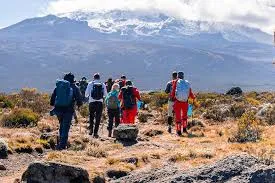
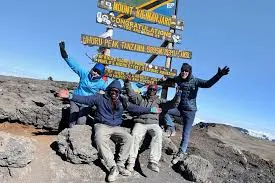
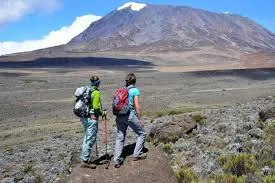
Experience a Kilimanjaro Climb in February
Watch the thrill of Kilimanjaro trekking unfold, from lush rainforests to the snowy summit of Uhuru Peak, with Capable Africa Tours.
What to Pack for Your Kilimanjaro Climb in February
Packing for a Kilimanjaro climb in February requires preparation for diverse climates, from humid rainforests to freezing summit nights. Neutral, layered clothing and quality gear are key. Below is a detailed packing list to ensure you’re ready for Kilimanjaro trekking.
- Layered Clothing: Moisture-wicking base layers, fleece mid-layers, waterproof jacket.
- Hiking Boots: Waterproof, broken-in boots with ankle support.
- Sleeping Bag: Rated for -15°C for summit night comfort.
- Trekking Poles: Adjustable for stability on steep trails.
- Headlamp: With extra batteries for the summit ascent.
- Sunscreen & Sunglasses: SPF 50+ and UV-protective glasses for glacier glare.
- Water Bottle/Bladder: 3L capacity for long trekking days.
- Personal Medications: Diamox for altitude sickness (consult a doctor).
How Much Does a Kilimanjaro Climb in February Cost?
A Kilimanjaro climb in February typically costs between $1,850 and $3,500 per person, depending on the route, group size, and inclusions. Budget options start lower, while luxury treks with premium campsites can exceed this range. Below is a cost breakdown for clarity:
- Budget Kilimanjaro Trek: $1,850–$2,500 (group tours, basic camps).
- Mid-Range Kilimanjaro Trek: $2,500–$3,000 (private groups, quality tents).
- Luxury Kilimanjaro Trek: $3,000–$3,500+ (premium camps, extra amenities).
Contact us now to plan your Kilimanjaro climb in February!
Kilimanjaro Climb Price Inclusions & Exclusions
Our Kilimanjaro climbing packages include park fees, expert guides, porters, and meals, ensuring a seamless trek. Exclusions like flights and personal gear are clearly outlined to help you plan. Below is a detailed breakdown of inclusions and exclusions for your Kilimanjaro climb in February.
Price Inclusions
- Round-trip transfers from Moshi
- Certified English-speaking guides
- All park entry fees for Kilimanjaro
- Full-board meals during the trek
- Tents, porters, and cooks
- Daily medical checks for safety
- Summit certificate on completion
Price Exclusions
- International flights to Tanzania
- Travel or medical insurance
- Tips for guides/porters (~$15–20 pp/day)
- Personal gear (sleeping bag, boots)
- Optional activities like photography workshops
- Alcoholic beverages
Ready for Your Kilimanjaro Climb in February?
Join Capable Africa Tours for a Kilimanjaro climb in February, conquering Uhuru Peak with expert guides and tailored support. Experience Africa’s highest mountain in optimal weather with fewer crowds.
- 95% summit success rate on Machame and Lemosho routes
- Certified guides and daily medical checks
- Eco-friendly camps with full-board meals
- Small groups for personalized adventures
- Supports local porters and conservation
Limited spots for February treks—book now to secure your Kilimanjaro climbing adventure!
Book This Trek Now
